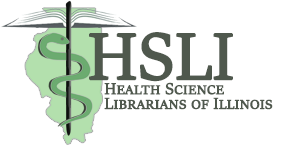(Note: This post is an article that appeared in the Spring, 2016, issue of the IACRL Newsletter.)
Katharine (“JJ”) Pionke, Applied Health Sciences Librarian and Assistant Professor at the University of Illinois at Urbana-Champaign, is the 2016 recipient of the American Library Association’s Carnegie-Whitney Grant. The grant funds the development of reading lists, webliographies, and other resources that can benefit broad user groups. Pionke’s project focuses on annotated research guides covering particular disabilities.
To read the full announcement on Pionke’s winning the grant, go here. Below, she answers some questions on how she came up with the idea for the grant project and on the ways in which libraries can better serve disabled students.
Congratulations on receiving the American Library Association’s Carnegie-Whitney Grant! What was your reaction to learning the news?
Thank you! There might have been a very loud whoop, followed by delighted laughter. The second thought was, now I get to do this really cool thing and have to get ready for it!
Have you known, or had a chance to work with, any of the previous recipients?
No, I have not. Though, as I was preparing my application, I checked out several of the past recipients’ projects. What struck me the most was how uncomplicated they were. Looking at the projects made me feel like I could actually put in an application, and if I was awarded the grant, then I could achieve it.
How did you come up with the idea for creating a group of research guides covering specific disabilities?
My research at the University of Illinois at Urbana-Champaign revolves around disability in the library. There are a lot of websites out there that provide resources for specific disabilities, but there is no one place that provides resources for many different types of disabilities, assistive technologies, or disability theory. Instead of scrambling all over the Internet, what if there was a nice compact place to at least get started on learning about a disability? Each disability will have a resources list that falls under a variety of categories-for instance, government/official organizations, popular books, popular film, medical, historically important works, etc.
What is the most significant challenge academic libraries face in providing services to students with disabilities?
There are so many answers to this question. A top one for me is creating an environment where functionally-diverse students are empowered to ask for help and to point out when we get it wrong and, more importantly, help us make it right. We need to move our profession away from pride in ADA compliance, especially because compliance means minimum. Instead, we really need to embrace accessibility and universal design, so that all of our patrons-regardless of ability, gender, race, sexuality, age, etc.-can use the library.
What advice would you give to a librarian applying for a similar grant?
Really think about how you would build what you want to create. Part of my application was a detailed exem- plar structure of what the LibGuides could look like. It doesn’t mean that they will absolutely look like that when they are done, but the structure is a starting place. Be passionate about what you want to work on, and let that passion show in your application. I also had many people look at my application over the course of its development, from the first brain-storming phase, through the final draft and ready-to-submit phase.
